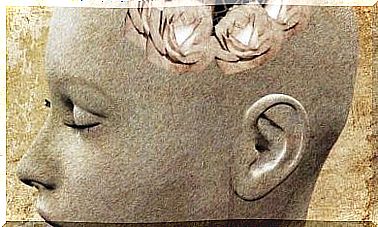Recognize The Mental Noise That Increases Your Stress

Our mind constantly performs automatic routine patterns, it is an adaptive function. Thus, it recognizes our usual time of sleep and the time at which we usually eat. Also, it recognizes and internalizes our most frequent behaviors. As a counterpart, these automatic processes can cause mental noise or “cognitive distortions”, which have negative effects on our daily activities.
According to cognitive theory, despite what is popularly believed, we should not look for the true causes of stress in external circumstances, but it can be generated from these distortions of thought. Next we are going to identify some of them:
Recognize the mental noise that increases your stress
1. Dichotomous thinking
Mental attitudes direct our daily activities, they are part of our personality, and in the long run they determine our success or failure in life. A damaging “mental noise” is often thinking of everything in terms of “black or white.” That is to say, not to give space to the grays, to the different tones in things. For example, when we believe that something we plan must be exactly that way or, otherwise, it will be a total failure.

2. Emotional reasoning
Another very common cognitive distortion is “emotional reasoning.” This is thinking that things are wrong simply because our emotions tell us so. Reasoning based on emotions can cause us many problems in our lives. Robert Greene, the author of the “48 Laws of Power,” advises us to always seek to observe things as they are. Successful strategic thinking bases your reasoning without any emotion involved. Difficult, right? But not for that, impossible.
3. Illogical reasoning
This type of mental argumentation constantly distorts our perception of what is happening around us. It is possible that we tend to generalize too much the bad things that happen to us and think that everything bad has to do with us. Luck, according to the ancient Greeks, was for everyone, without distinction. It is as absurd as thinking that a cloud stands over us so that it rains only on us, as it happens in cartoons.
4. Hasty conclusions or arbitrary inferences
Another common mental noise is rushing to jump to conclusions. That is, when a situation is occurring at the moment and we conclude – with little or no objective data – that it will end badly or affect us in future events. The best thing we can do to combat this mental noise is to concentrate on analyzing the painting carefully, without, of course, always looking for a way out so that it does not happen to us.
5. Diffuse perceptions
This type of mental distortion occurs when we see in an exaggerated way what is presented to us. People who tend to maintain a catastrophic view of reality exaggerate the importance of bad or neutral things and how much they really impact our lives.

6. Personalization
We also have a misperception known as “Personalization. ” It means that we feel responsible for all the problems that happen around us. We confuse influence with control. For example, if the economy is bad, we think we are doing something bad too.
7. Negativism
Finally, another “popular” mental distortion is seeing everything in a negative light. Whether it is local news or events that happen around us, we always take the negative of the news and forget the advantages it could have in our life.
The role of cognitive distortions as “mental noise”
Cognitive distortions affect our reasoning and everyday decisions. The best way to combat them is by creating a new attitude, for which we can help ourselves by repeating statements contrary to what we are reasoning. If we hear ourselves making a negative comment, we should think: “However, it could be otherwise . ” Or, perhaps thinking: “it probably won’t affect me” , and finally: “If I can’t change the world, I will have to change myself”.
Tony Robbins recommends doing positivity exercises with a friend: for 10 days do not make any negative comments about anything or anyone and place a bet with your friend. The first person to make a negative comment should start their count again from day one.
And you, how often do you find yourself thinking negatively? What strategies do you use to deal with cognitive distortions?









